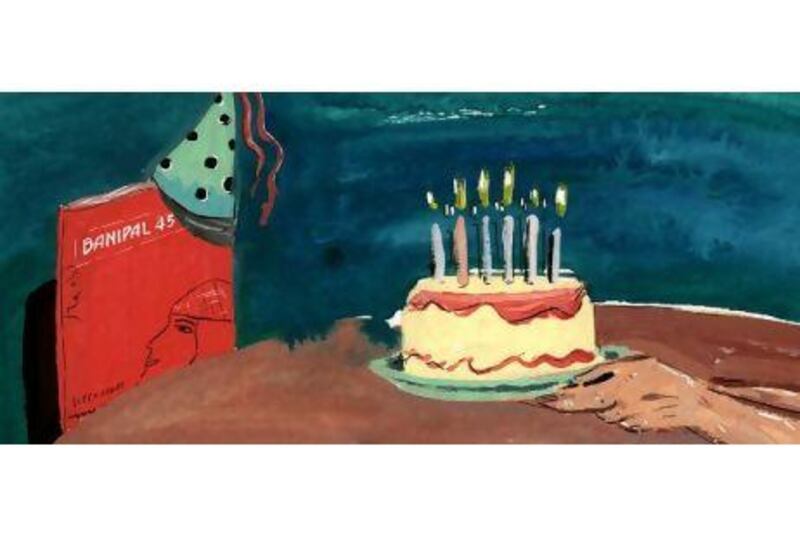An afternoon browser in the Al Wahda Mall branch of Magrudy's book store is likely to be magnetically drawn to the brightly coloured stacks of first-edition copies of The Casual Vacancy that currently fill its retail environment. The primary palette of its book jacket announces the author's dramatic change of tack in the post-Potter years.
JK Rowling's first foray into adult fiction may have split the critics and shaken up a few expectations of the best-selling author - certainly the initial reaction from The Review was that The Casual Vacancy was, at best, a challenging read - but, as the dust has settled, its publication has united her fans: Vacancy has taken up residence in the upper reaches of the sales charts (it would almost certainly occupy top spot but for a certain trilogy of books by EL James) and is likely to be remain rooted there long into next year.
If your eyes can shift away from Rowling's latest work and you wander a little farther into the store, you'll come across Banipal, an equally noteworthy, although significantly less hyped, publication, nestled among the raft of newspapers and magazines jostling for attention on the racks.
Published in A5 format, Banipal, a journal of modern Arabic literature in English translation, first hit the streets in the final years of the last century. Few gave it, or its creators Margaret Obank and Samuel Shimon, much hope of making it to issue two. Such pessimism was thankfully misplaced: Banipal marked its 15th birthday earlier this week with the publication of its 45th issue.
Shimon, whose episodic, semi-autobiographical novel AnIraqi in Paris was released in Kindle format earlier this year (following its hardback publication by Bloomsbury Qatar Foundation last year), is a charming figure and a determined fellow. I was lucky enough to spend a few hours with him last year when he made a brief stop in Abu Dhabi on a scouting mission for a future issue of Banipal focusing on Emirati authors. Our conversation flipped from topic to topic, but kept returning to the amazing story behind his evergreen literary journal.
"When we started Banipal they said I was a dreamer. They said: 'How are you going to make money from it?' People said we cannot continue. But we have been doing it for 14 years non-stop," he told me. Thankfully, he is still a dreamer today and together with Obank, something of a steely-eyed visionary too.
Banipal's trick is to keep coming up with editions that address contemporary matters. Last year, the magazine focused its attentions on Libyan writers just as the uprisings were beginning to swell and the long, slow road towards Qaddafi's downfall had started to reveal itself.
The issue before that had collected works by modern Tunisian writers just as the Arab Spring was about to dramatically announce itself to the world. This year, the anniversary edition turns its attention towards writers from Palestine.
In his introductory notes to the new edition, Fadhil Al Azzawi, a contributing editor and author, describes the journal as a "literary and cultural phenomenon [that] renews itself with every issue … Each issue is a reminder that in the history of literature nothing is impossible."
Having silenced the doubters by making it into the middle teenage years, Obank and Shimon deserve all the praise that is sure to come their way. Banipal is a unique voice in the literary world, an exercise in the art of the possible. Long may it remain so.
Thankfully, Shimon is unlikely to stop doing what he's doing anytime soon. "I don't have anything else," he told me last year. "Only making magazines, reading in Arabic. When I am doing these things, I am very happy."






